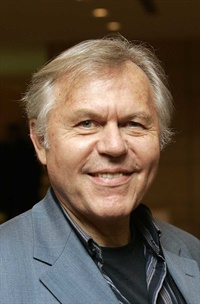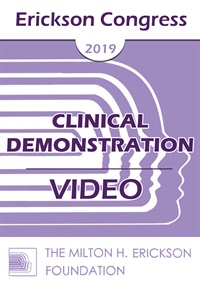IC19 Clinical Demonstration 21 - My Problems As My Guiding Helpers - Utilizing Symptoms and Problem States As Competent Messengers of Important Needs - Gunther Schmidt, MD
- Average Rating:
- Not yet rated
- Topic Areas:
- Clinical Demonstrations | Utilization | Consciousness | Unconscious Processes | Psychotherapy
- Categories:
- Erickson Congress | Erickson Congress 2019
- Faculty:
- Gunther Schmidt, MD, MA
- Course Levels:
- Master Degree or Higher in Health-Related Field
- Duration:
- 1 Hour
- Format:
- Audio and Video
- Original Program Date:
- Dec 14, 2019
- License:
- Never Expires.
Description
Description:
If somebody experiences a problem this can be described as self-made constructions of reality (not wanted, on an involuntary and mostly unconscious level) which expresses a discrepancy between what is experienced as "it is just happening“ and "what should be“. Suffering evolves when the conscious mind is fighting the unwanted involuntary reactions to tries to escape from them or erase them because all these attempted solutions fail.
In other words: at least two different parts oft he experience interact, namely the conscious mind which wants a certain experience and the unconscious part which reacts as if it would live in an other world/context with other conditions and the involuntary "problem reaction“ can be understood as reaction towards those unconsciously experienced conditions. So the unconscious knowledge about needs gives signals like a competent feedback-instrument. And the problem reaction (e.g. suffering) can be understood as competent information about the needs in the unconsciously experienced context.
In "translating“ symptoms and problems on the basis of this understanding clients can be dignified in a holistic way about their intuitive knowledge and it can be developed a peaceful and curious cooperation between conscious and unconscious involuntary processes with utilizing the wisdom of the body and the unconscious abilities of awareness of context conditions and how to cope successfully with them. This can be intensively supported by the use of parts models, systemic context-related questions, pseudo-orientation of time and of metaphorical and symbolic interventions.
Educational Objectives:
- Describe the autopoietic creation of experiences on an autonomous internal unconscious level as the creation of networks of sensory elements of experiences which interact with each other in a circular way.
- Demonstrate how clients can change their experience autonomously in creating differences into their experiential networks.
- Demonstrate how clients can translate their symptoms into helpful messages, how they can build up helpful distance to suffering processes and how they can successfully associate (also consciously directing their focus of attention) with competent experiences of feeling protected and at the same time being able to act in a wanted way and to utilize unwanted inner reactions to fulfill their needs.
*Sessions may be edited for content and to preserve confidentiality*
Credits
Faculty

Gunther Schmidt, MD, MA Related Seminars and Products
Gunther Schmidt, MD, MA, is the director of the Milton H. Erickson Institut Heidelberg and director of the SysTelios Clinic for Psychosomatic Competence, Siedelsbrunn. Dr. Schmidt holds a master’s degree in Economics and is the recipient of the Lifetime Achievement Award from the German Business Training Association. He is a founder, honorary member, and former vice-president (1984-2003) of Milton Erickson Society of Germany, founding member and teaching expert of Systemic Society of Germany, German Society of Systemic Family Therapy, and German Federal Association of Coaching.


